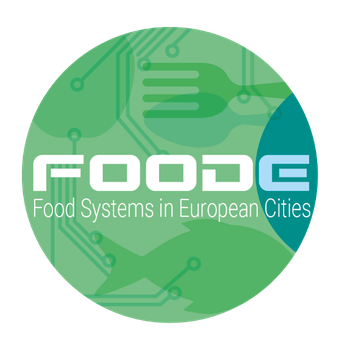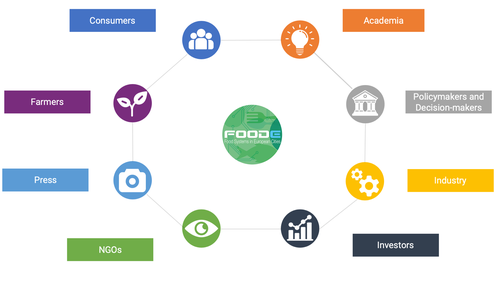
The EU-funded project “Food Systems in European Cities” (FoodE) aims to accelerate the growth of sustainable and resilient City/Region Food Systems (CRFS) by bringing together citizen-led local food initiatives across Europe. FoodE seeks to build a “Think global, eat local” mindset, to address the pressure of global challenges threatening food security and to boost the development of local economies.
Currently, the rise of world population, the urbanization process, the pressure on natural resources and the impact of climate change, are challenging the existing ways we produce, consume and think about food. In this context, sustainable CRFS have been defined as networks of local stakeholders, establishing contractual or unofficial relationships throughout the whole food value chain (i.e. production, processing, marketing, distribution, consumption, collection) across local and regional landscape. CRFS encompass the urban area, peri-urban area - which is the buffer zone between the urban and rural areas - and the rural area itself, focusing on sustainability, food security, social inclusion, local/regional sourcing, as well as health conditions.
FoodE will act as an exchange platform where public authorities, citizens, SMEs and non-profit organisations will share ideas, best practices and tools to support cities and regions in their transition towards innovative and sustainable food systems. At its core, FoodE will nurture the role of active citizens who are involved in the food production, distribution and consumption, leading the way to enable consumers becoming ‘prosumers’.

FOODE OBJECTIVES
The contribution of FoodE to long-term policy strategies:
FoodE addresses the key priorities laid down in Food 2030, the EU research and innovation policy response to the need for resilient, healthy and inclusive food systems. In particular, the project will provide a set of recommendations, which are in line with the European Commission Green Deal’s Farm-to-Fork Strategy, paving the way to fair, healthy and environmentally friendly food systems. Furthermore, insights from the project and its results will boost economic activities at local level, whilst local communities to make progress towards the UN Sustainable Development Goals (SDGs).
The communication objectives:
1. To communicate and raise awareness about CRFS and their benefits towards improving food security, local economy, social integration while mitigating the impact of climate change and adapting to social changes;
2. To involve CRFS stakeholders in the communication efforts surrounding local food initiatives;
3. To disseminate and communicate FoodE’s results towards relevant stakeholders including citizens, public authorities, industry and non-profit organisations.